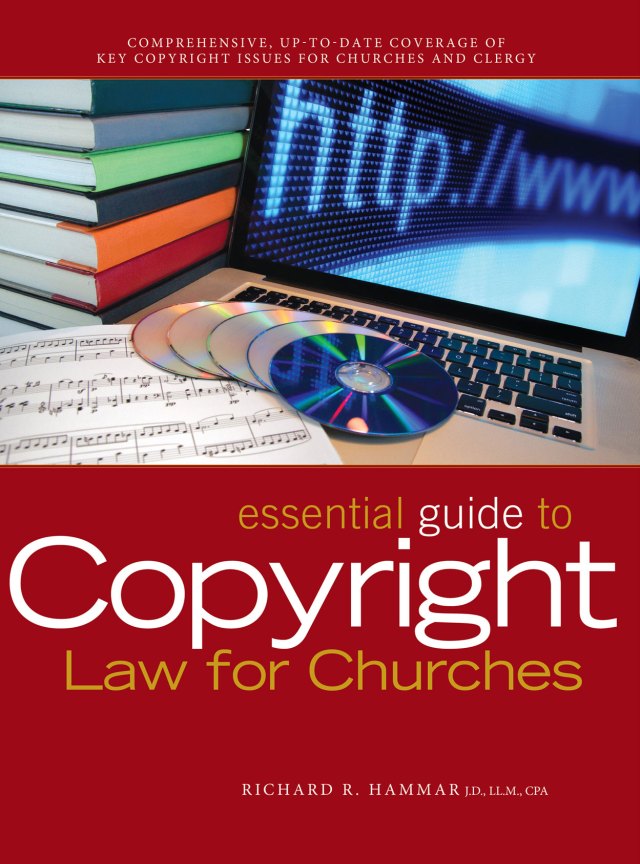Often, trademarking and protecting intellectual property seems like a “big church” affair. It requires lawyers, money, and time that smaller churches might not have. But protecting your church’s name and logos, regardless of your size, may be a wise decision. In fact, it may benefit your church to protect items before it grows any larger.
Consider this recent case:
Christian Faith Fellowship Church, a small congregation near Chicago, trademarked the phrase “ADD A ZERO” in 2006 as a way of encouraging those who purchased something from its small store or tithed to the church to “add a zero” to the total amount. The church publicly said the phrase was a “prophetic word spoken to [its] congregation in the early 2000s, in an effort to raise money for the building fund, food pantry …”
In 2009, Adidas, the sporting goods retailer, tried to register a trademark for “ADIZERO,” a new sub-brand of the company’s clothing line. The United States Patent and Trademark Office denied its application because ADIZERO was too similar to the ADD A ZERO® trademark owned by Christian Faith Fellowship. This put Adidas in a tough spot. Without the trademark, it had no legal protection for the ADIZERO mark, but it had already launched the product line, and invested money to market it. The company also signed professional basketball player Derrick Rose to a $250 million sponsorship deal—in part to promote the ADIZERO footwear.
To try to rectify the situation, Adidas sent Christian Faith Fellowship a $5,000 offer to give up its trademark. The church refused. It said losing its trademark would severely hurt the church’s efforts to raise badly needed funds.
In 2011, Adidas filed a petition with the USPTO to cancel the church’s trademark on the grounds that it hadn’t used it enough in commerce. James Logan, the pastor of Christian Faith Fellowship, wrote a letter in 2011 to Adidas CEO Erick Stamminger, asking him to cease his attempts to take the trademark away from the church.
“I have long been an admirer of Adidas and would not expect a company of your stature, with celebrity endorsers like Mr. Rose, to try to use its wealth and power to bully a working-class church,” Logan wrote. Logan also wrote Rose, asking him to use his star power to make Adidas stand down. Rose, however, remained silent on the issue.
In May of 2013, the Trademark Trial and Appeals board preliminarily denied Adidas’s petition, explaining that the church had sold at least two T-shirts with the ADD A ZERO® mark on them in the past four years. As of May 2014, this case remained open, with all motions pending.
Lessons for small churches
Churches can learn from both sides of this case.
From Christian Faith Fellowship Church, leaders can learn that protecting brands, names, and goods helps prevent your church from being bulldozed by larger churches or companies who may later demand your church to use a different name. Christian Faith Fellowship, a small church in Zion, Illinois, has a lawful right to its trademark, and in proving this, it has been able to defend that right.
However, the church might have had an even easier time proving its ownership by using the ADD A ZERO® trademark more consistently and more broadly. It was on these grounds that Adidas attempted to prove that the church should give up its rights to the trademark. In this case, the two T-shirts sold were able to prove that Christian Faith Fellowship did, in fact, use the trademark, but had the church used it more broadly, Adidas may not have challenged the church in the first place. For today’s churches, broad use could be as easy as featuring this trademark on the church’s website.
From Adidas, churches—especially small churches that may think they don’t need to trademark their Bible study materials and other materials now—can learn that it’s better to protect these things early than to have to go back and change the names of these elements later. Had Adidas done its due diligence and searched for available trademarks before manufacturing its clothing line and creating a marketing plan centered on ADIZERO, it could have found a more available name, trademarked it, and not wasted the past six years trying to fight a small church.
Names to protect
The types of names most worth protecting include:
Church name;
Domain name;
Study materials/curriculum;
Community outreach programs;
Conferences, seminars, and camps hosted by the church
If your church waits to protect, say, a Bible study curriculum name, and an outside church or organization accuses you of infringing a name that it already trademarked, your church may not have legal grounds to keep using that name. It may mean your church will need to change the name of everything in question. Imagine reprinting Bible studies, changing logos for bulletins, graphically re-designing your website, and so on. It’s time-saving and cost-efficient to protect names early on. Think of it as a safety net—a wise investment for your church’s future!
